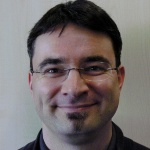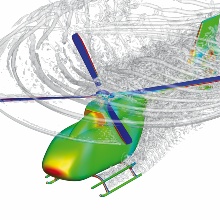Master’s studies in aerospace engineering can be started in any semester. In follow-up to the deepened fundamentals acquired during the Bachelor’s studies, you can choose two from among our wide range of specializations.
In addition, students study complementary modules for versatile use in challenging areas of responsibilities. The sound training not only qualifies you for employment in the aerospace industry, but offers the best preparation for a successful career in a large number of technology areas.
- Knowledge of mathematics and physics
- Interest in technical problems
- Being prepared to learn foreign languages
Engineer in the field of research, development, design, system integration, production, quality assurance, project management, technology management, maintenance, logistics, certification, training, etc. in companies and public institutions within and outside the aerospace industry.
Further job descriptions and activity information can be found in the BERUFENET database of the German Federal Employment Agency:
- BERUFENET
Studying abroad: what opportunities does my study program offer?
Are you a student from abroad interested in studying aerospace engineering at the University of Stuttgart? We maintain numerous discipline-specific contacts with foreign universities and other research institutions. For an initial overview of our partner institutions, programs, and financial aid opportunities, we recommend starting with a visit to the student website.
For general questions regarding a study-abroad stay, please contact the University of Stuttgart’s International Office. You will find answer to the most frequently asked questions in the “ERASMUS Incomings FAQ”.
ERASMUS office appointments
Jose Rodrigo Imeri Vargas
Student Assistant
Wednesdays noon - 14:30 p.m. - or by arrangement
Tel. +49 711 685-65767
Send an e-mail
- International Office
Support for international applicants - Dr.-Ing. Markus Leitner
ERAMUS - Commissioner and academic employee - ERASMUS office appointments
Student Assistant
How is the program structured?
The Master's program comprises 120 credit points (ECTS credits), which are completed in a standard period of study of four semesters. The credit points are distributed among in compulsory elective modules (24 ECTS credits), specialization modules (48 ECTS credits), supplementary modules (18 ECTS credits) and the master's thesis (30 ECTS credits).
From a choice of six specialization modules, four are compulsory for students in the Master's program. The specialization modules are taken from two specialization tracks, each with 24 ECTS credits. In addition to the specialization modules, supplementary modules are chosen. These include the modules of the specialization part that go beyond the required 24 ECTS credits and all specialization fields, unless these have already been completed as part of the specialization. Within the supplementary part, 6 ECTS credits of subject-related key qualifications can be taken as an option.
In the specialization modules, the fundamentals from the bachelor's program are deepened and supplemented. A wide range of specialization modules allows a multitude of possible combinations. This enables an individual education that takes into account the personal interests of the students. Writing the master's thesis promotes the independent development of scientific topics, the application of scientific methods in aerospace engineering and their further development in selected areas.
All modules and their descriptions are listed in the C@MPUS system.
The exact module explanations can be found in the module handbooks (german only). There, the individual modules are described with the associated courses, the contents and the examination performances.
Compulsory elective modules (4 out of 6):
- Analytical and Numerical Methods in AE
- Aircraft Aerodynamics and Aircraft Design I
- Aircraft Engines and Combustion
- Spacecraft Technology I
- Control and System Design
- Structural Dynamics
Specialization tracks (2 out of 8):
- Mathematical and physical modeling in AE
- Experimental and numerical simulation methods in AE
- Information Technology in AE
- Construction materials and manufacturing methods in AE
- System dynamics and automation engineering in AE
- Design and construction aerospace vehicles
- Drive and energy systems in AE
- Space flight technology and space utilization
- Module handbook in C@mpus
Link to the study program's module handbook (German only)
Important Websites
Which institutes are involved in this study program?
- Institute of Aerodynamics and Gas Dynamics (IAG)
- Institute of Flight Mechanics and Flight Control (IFR)
- Institut of Aircraft Design (IFB)
- Institute of Aircraft Propulsion Systems (ILA)
- Institute of Aircraft Systems (ILS)
- Institut of Space Systems (IRS)
- Institut of Statics and Dynamics of Aerospace Structures (ISD)
- Institute of Combustion Technology for Aerospace Engineering (IVLR)
- Institute of Aerospace Thermodynamics (ITLR)
- Chair of Flight Measuring Technology
Accreditation

Contact for further questions
Michael Reyle
Dr. rer. nat.Academic Employee, Program Manager Aerospace Engineering

Christian Koch
Dr.-Ing.Manager Altitude Test Facility, Academic advisor, deputy head of the institute



